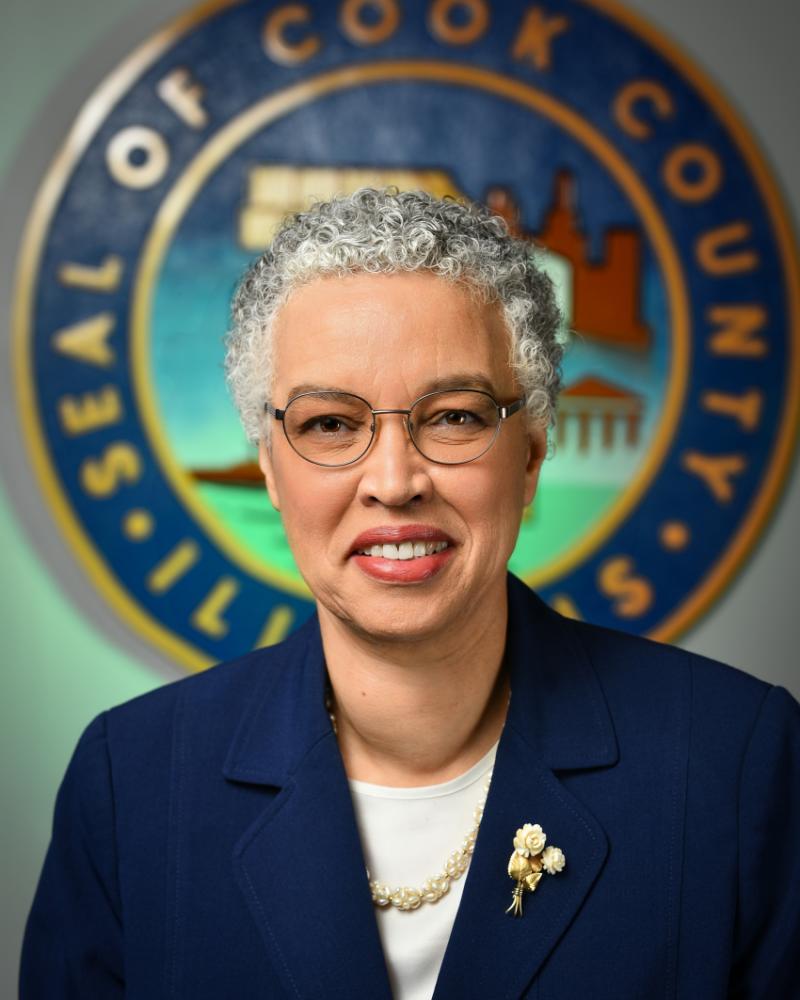Toni Preckwinkle currently serves as the Cook County Board of Commissioners president, where she manages the financial affairs of the county and has championed a variety of projects. But before that, she came to Chicago to study the social sciences at UChicago. In an interview with The Maroon, Preckwinkle discussed her time at the University and subsequent career in politics.
Preckwinkle has served as president of the Cook County Board of Commissioners since 2010. She describes her primary duties as being “responsible for the budget and ensuring that we have the revenues to implement the programs that we’ve outlined.”
A native of Saint Paul, Minnesota, Preckwinkle studied social sciences at the University of Chicago from 1965 to 1969.
“I went to a public high school where I could get good grades without working very hard, which is not good preparation for the University of Chicago,” Preckwinkle said of the academic challenges she faced at the College. “I was a terrible student in my first couple of years, although by the time I graduated, I was doing pretty well.”
She added, “In lots of ways, it was a challenging place. There were virtually no Latino students and there were very few Black students and a lot of very privileged people, so it was… a challenging place for me.”
She also said that her time at the University, between 1965 and 1969, was a “tumultuous time,” noting that there were many “anti-war rallies, a lot of ferment on campuses around…the war [and] racial justice and social justice issues.”
After graduation, Preckwinkle went on to graduate school to become a teacher. She taught social studies at Englewood and South Shore neighborhood high schools.
Preckwinkle became involved in politics through the Hyde Park neighborhood club, doing development work, before taking a job at the city’s Department of Economic Development and Chicago Jobs Council, where she worked with community-based organizations on employment training.
She then decided to run for office and, after two failed attempts, was narrowly elected as alderman of the fourth ward by 109 votes out of a total of 10, 865 votes cast in 1991.
Preckwinkle went on to spend 19 years representing the fourth ward, which encompasses parts of the Kenwood, Oakland, Douglas, and Hyde Park neighborhoods. She described the work as fulfilling: “You’re the mayor of a small town…and that means people come to you for not just, you know, potholes and streetlights, but they want to get their kids in a good school, [or] if they want housing, if they want a job,” she said, “You can help people in lots of ways.”
She described her decision to run as an opportunity, saying “I looked around for other things I might do and I decided to run for president of the County Board because Todd Stroger, the incumbent, clearly wasn’t gonna win.” Stroger went on to finish fourth in the Democratic primary after a tenure clouded by allegations of nepotism and mismanagement, as well as a sales tax increase.
Preckwinkle also said, “I thought somebody who cared about the big issues [of] public health and public safety ought to try.”
Preckwinkle said that “getting the finances [of the county] in order” was a “tremendous challenge” but touted her work reducing liabilities and upgrading the county’s bond rating, saying “We’ve, with the help of really good people, gotten the finances in order.” According to the Chicago Sun-Times, Cook County currently faces a $170 million deficit, and, as of the treasurer’s 2021 disclosure, has $72.5 billion in unfunded pension liabilities.
Preckwinkle also noted her work with UChicago to analyze the impact of Cook County’s medical debt forgiveness and guaranteed income programs, which have seen thousands of residents receive recurring monthly unrestricted payments. She said, “We’re working with academic institutions like the University of Chicago to figure out what impact our guaranteed income pilot is having.”
Finally, she discussed her efforts to improve transit access on the South Side, citing a project to extend the Red Line to 130th Street and the Fair Transit South Cook Project, which reduced fares on the Rock Island and Metra electric lines as well as increased Pace bus service on the heavily utilized Halstead route.
However, she noted that the CTA was uncooperative with respect to calls to increase service on their South Michigan bus route. She also noted that attempts to get the CTA, Metra, and Pace to accept the same payment method have faced difficulties due to governance conflicts.
Reflecting on initiatives such as these, and her career in politics more broadly, Preckwinkle said, “If you work at it, you can really make a difference in the communities you serve.”









